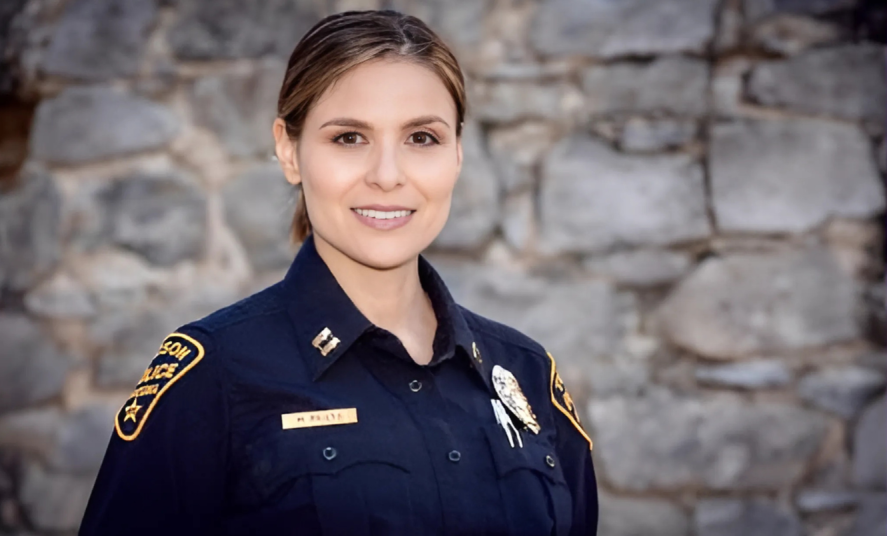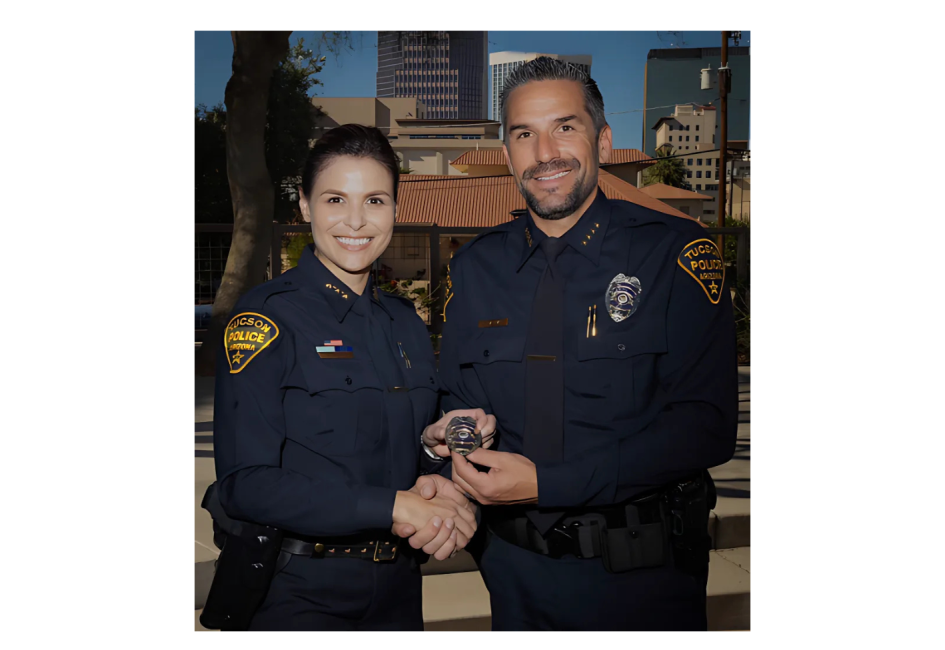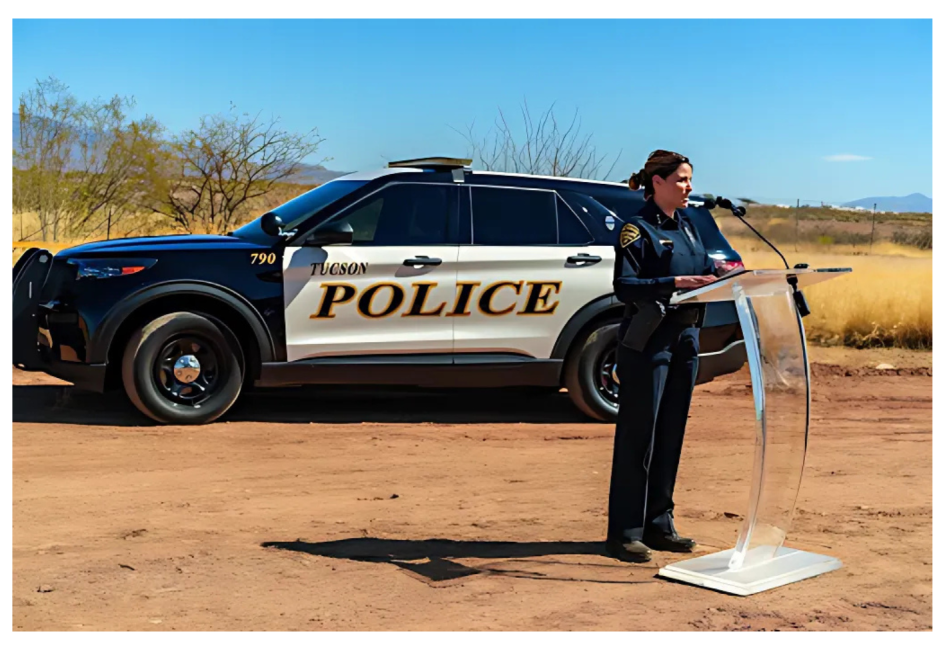Monica Prieto: Behind the Badge, Beyond the Job.


Monica Prieto didn’t grow up dreaming of a badge. Raised in Tucson, Arizona, she loved crime shows, but law enforcement never felt like a career option. That changed when a female officer visited her college class during her final semester. “I just figured I’d try it,” Monica said. “And I liked the idea of being a detective.”
That decision would mark the start of a 25-year career that led her from patrol to detective and from sergeant to Deputy Chief of the Tucson Police Department (TPD). It would take her through child and adult sexual assault cases, into the aftermath of George Floyd and staffing shortages, through moments of doubt and disconnection, and eventually into a role where she would help shift the culture of one of the largest departments in Arizona.
What ultimately changed everything wasn’t another policy. It wasn’t another promotion. It was a program called Struggle Well.
Before that, Monica carried the weight of her work the only way she knew how: quietly. When she started at TPD in 1999, the culture was clear. You signed up for this, and you dealt with it. In her early years as a detective, she handled cases most people would struggle to hear about, much less investigate day after day. The trauma was real, but talking about it wasn’t an option.
“You sucked it up and moved on to the next call,” she said. “That’s just how it was.”
Even as she rose through the ranks, leading units and eventually entire divisions, that weight never truly left. If anything, it deepened. During her time overseeing the Southside Patrol Division, where she had grown up, officers were facing unprecedented levels of stress, public scrutiny, and trauma due to high rates of violence. Morale was low, and staffing was lower.
“It didn’t feel like the department we had signed up for,” Monica said.
But it was in that moment of challenge that the opportunity to change began.
One of her colleagues, Captain Flores, made a connection with Joe Wood and the Boulder Crest Foundation. Together, they introduced Struggle Well to the TPD. What started as a single class soon became something much larger.
When Chief Chad Kasmar stepped into his new role in late 2021, he and Monica made a shared commitment to carry the program forward and fully embed it into the department’s culture. They created a dedicated wellness division, brought on peer support sergeants and mental health clinicians, and expanded access to Struggle Well for everyone in the department: officers, civilian staff, retirees, and even spouses. “We’ve normalized struggle,” Monica said. “We’ve made it okay to not be okay—and shown that sharing our stories can empower others to find their purpose and recognize the resilience within themselves.”
“We’ve normalized struggle,” Monica said. “We’ve made it okay to not be okay—and shown that sharing our stories can empower others to find their purpose and recognize the resilience within themselves.”
Monica experienced that shift firsthand. Like many who go through the program, she didn’t walk in expecting a revelation. But what she found was a deeper awareness of the relationships in her life, the patterns she had accepted, and the pieces of herself she had long ignored.
That year of reflection made space for something better: stronger relationships and a more intentional balance between her work and home life.
It also renewed her passion for leading others with purpose, presence, and most of all, empathy.
“We’re not just creating better officers,” she said. “We’re creating stronger human beings.”
For Monica, Struggle Well isn’t just training. It’s a culture—a living, breathing effort to equip people with the tools they need to thrive. It’s shifted how her department approaches wellness, how her colleagues show up for one another, and how future officers are trained to manage the weight of a career in law enforcement.
“This job is trauma-heavy. It always will be,” she said. “But now we’re giving people the tools to handle it to ensure they have successful and meaningful careers.”
It’s a shift that’s also helping solve one of law enforcement’s biggest modern-day challenges: recruitment and retention.
“If we want to attract and keep good people, they need to know we care about them as human beings,” Monica said. “People want to be part of something that sees them, supports them, and invests in their whole life, not just their badge.”
That message is beginning to resonate. New recruits are entering the department with an understanding that mental health is part of the job, and it’s okay to ask for help. Department veterans, too, are seeing change and leaning into support networks they might have once resisted.
Monica still reflects often on the early years—the cases she worked, the kids she advocated for, the communities she served. She hasn’t forgotten the weight of it. But now, she carries it differently. And she’s helped hundreds of others learn to carry theirs, too.
“I wouldn’t change a thing about my experiences,” she said. “They challenged me, shaped me, and taught me. And now, we’re finally getting it right for the next generation.”
For Monica Prieto, this isn’t just a job. It’s a life-changing mission. And she’s leading it one story, one shift, one officer at a time.
Struggle Well is a program from the Boulder Crest Foundation that helps individuals transform struggle into strength and thrive in the aftermath of trauma. To learn more about the Struggle Well program or any of the opportunities available through the Boulder Crest Foundation, please click here.
Your support powers life-changing programs offered at no charge to veterans, military, first responders, and their families. With your help, our Warriors won't just survive — they'll thrive.

We have received your email sign-up. Please tell us more about yourself.